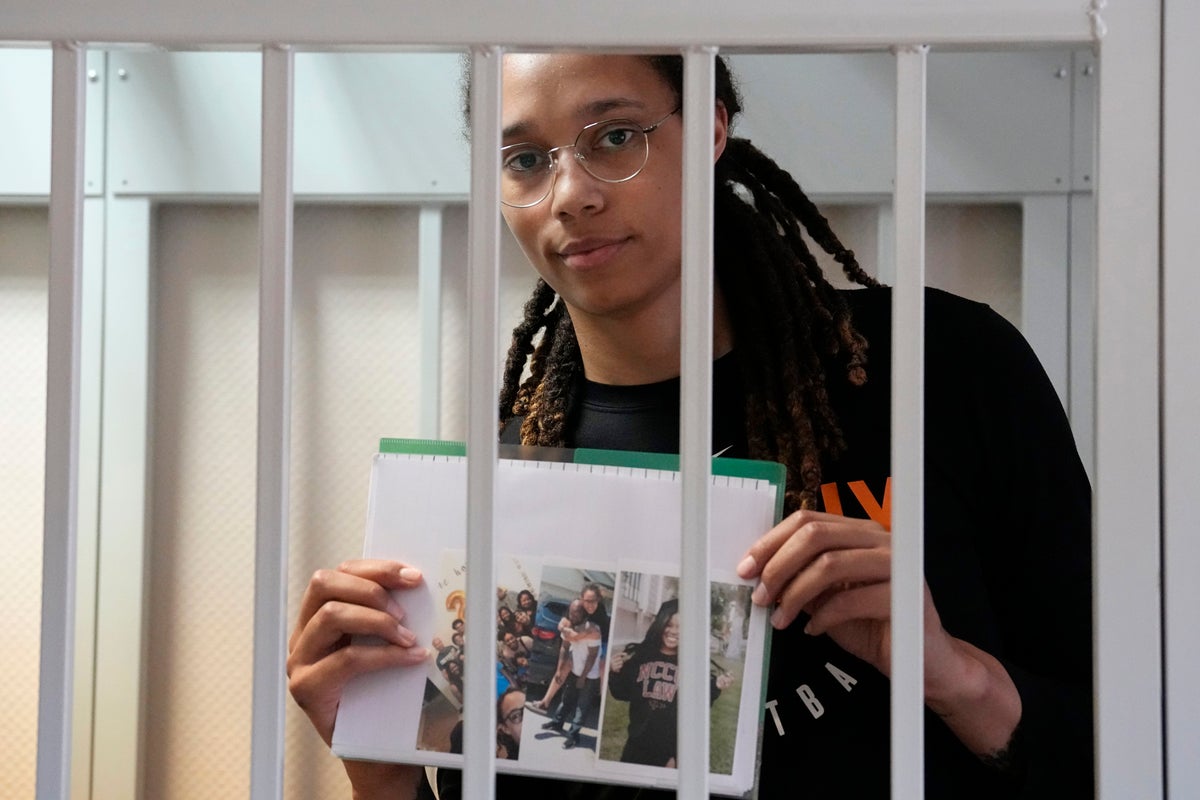Brittney Griner could only understand a small portion of what was said to her when she was arrested at a Moscow airport over charges of marijuana possession, the WNBA star testified.
The all-star American basketball player told a courtroom on Wednesday at her drug trial in Russia that the interpreter provided to her only did partial translations, resulting in her not fully understanding what she was signing when presented with documents back in February when she was first detained by authorities.
Earlier this month, Ms Griner acknowledged that while she was travelling to Russia she had unintentionally tucked inside her luggage two vape cartridges that contained small amounts of cannabis oil. Ms Griner had been in Russia to play basketball for a local team during the WNBA’s off-season.
Upon the discovery of the cartridges by airport officials, the two-time Olympic gold medallist was arrested at Moscow’s Sheremetyevo airport and charged with drug trafficking, an offence that can carry up to 10 years.
The Phoenix Mercury star pleaded guilty to the charges filed against her on 7 July, her Russian legal team confirmed at the time, noting that the decision had been hers and hers alone.
“She decided to take full responsibility for her actions as she knows that she is a role model for many people,” lawyers Alexander Boykov and Maria Blagovolina told journalists, according to CNN.
“Considering the nature of her case, the insignificant amount of the substance and BG’s personality and history of positive contributions to global and Russian sport, the defense hopes that the plea will be considered by the court as a mitigating factor and there will be no severe sentence.”
During Wednesday’s testimony, Ms Griner alleged that, in addition to receiving an imperfect translation of what she was being charged with, she also never received an explanation of her rights or access to legal representation. She was told to sign documents without anyone informing her what it was exactly she was committing her name to.
Clarifications were also sparse over the next couple of days, Ms Griner said, noting that she only got a cursory translation of the allegations at her 19 February hearing where a court officiated her arrest on drug charges.
Ms Griner has been detained in the country since her 17 February arrest. Her trial, which got underway on 1 July, marked some of the first moments that the 31-year-old basketball player had been seen alive by family members and friends who have been granted little to no contact with the star.
Her lawyers have stated that they ideally foresee the trial wrapping sometime at the beginning of August and are hoping for leniency in the sentencing. They hope that the 31-year-old’s guilty plea and their ability to produce a doctor’s letter recommending the basketball player use medical cannabis to treat pain will help.
Attorneys also said following earlier hearings that Ms Griner had samples taken from her that showed that there were no drugs in her system at the time of the arrest.
“She was clean, and she was tested,” Mr Boykov said.
Ms Griner was arrested in February just before Russia waged an attack on Ukraine. There’s been speculation in the Russian media that Ms Griner could be exchanged with a Russian imprisoned in the United States, though US officials have not commented on the legitimacy of these claims. The Associated Press reported this week that Russian officials “have said no exchange could be discussed until the conclusion of the legal proceedings against Ms Griner.”
